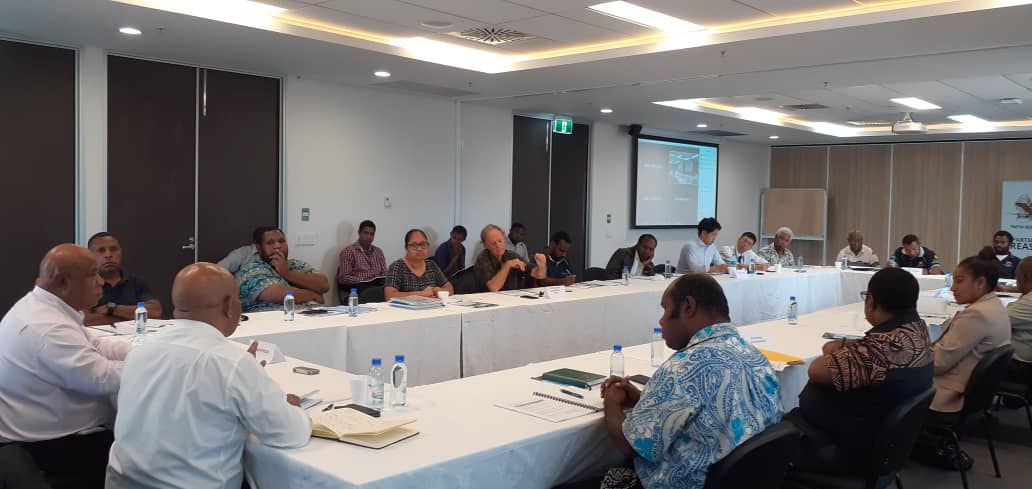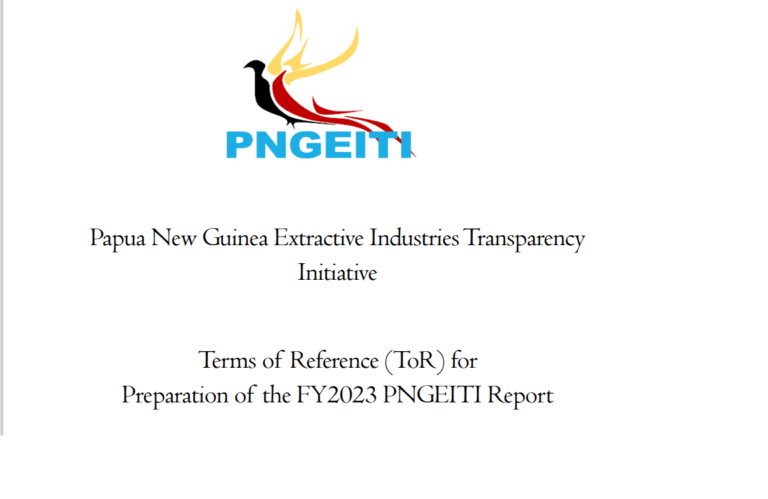Published: July 16, 2020
Head of PNGEITI National Secretariat Lucas Alkan has commended the efforts of the PNGEITI Multi-Stakeholder Group (MSG) for implementing the EITI Standard over the past 6 years however, called on MSG to utilise EITI’s full potential to improve governance in the sector.
Speaking on the eve of PNGs second validation and during the COVID19 MSG Constituent briefings, Alkan reiterated that PNGs implementation of the Global EITI Standard has gained favourable results so far with the overwhelming support from the PNG MSG, however still a great potential to improve governance in the mining and petroleum sector.
“Our decision to sign up to implement the EITI had opened the door for citizens to question the government and industry on how past and current mining, oil and gas deals are best tailored to contribute to implementing the Government’s development plans and agendas,” Alkan said.
PNG joined 53 other mineral wealthy countries around the world in 2013 and like many implementing countries, is working on mainstreaming a lot of the international EITI principles and requirements.
It is a journey of continuous improvement and most recently, in 2018, the PNG Government came up with a National Policy on Transparency and Accountability that set the framework for EITI implementation in this country.
Alkan acknowledged public sentiments surrounding the debate on Resource Extraction and National Development.
“Citizens have become sceptical that the extraction of these rich mineral wealth would translate into tangible service delivery, funding education and health programs, invested in rundown infrastructures and so forth for a better future for all,” Alkan said.
Photo: The PNGEITI Multi-Stakeholder Group during the first quarter meeting last month (June). The Multi-Stakeholder Group comprises representatives from the government, the extractive companies and the civil society organisations.





